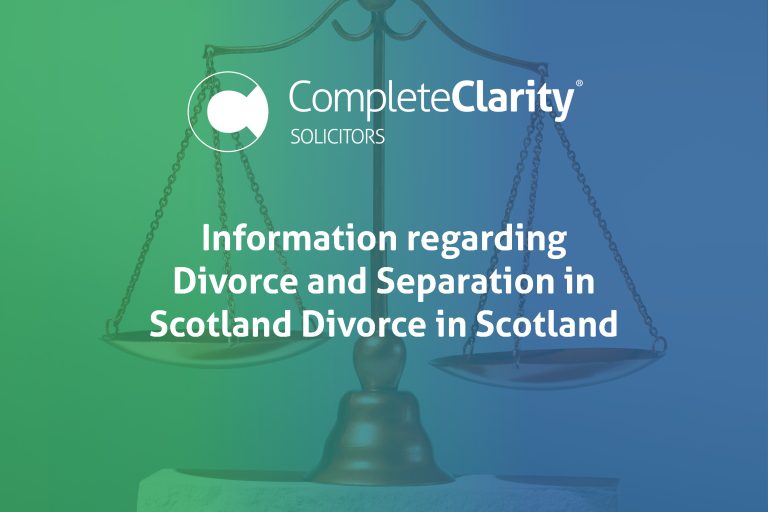Even in the best of circumstances, estimating the value of a shareholding can be difficult, but doing so in the context of a retroactive market can be particularly onerous.
Companies established or acquired during a marriage are regarded as matrimonial property in Scotland. Experts will attempt to determine the company’s value at the “relevant date,” which is the day that the parties parted, in order to determine the business’s value. This indicates that the price used to evaluate marital assets is different from the stock’s current market value.
Experts will typically assign a value to the business based on the assumption that both the seller and the buyer are willing to sell. This means that while determining the company’s value, you should often consider that both the seller and the buyer are motivated to obtain the highest possible price for the business.
Guidance on share valuation after divorce
Lady Wise in the case of SCA v. MMA [2020] CSOH 54 gave advice on this. In SCA v. MMA, the husband was a lone proprietor as well as the owner of several restaurants and stock in a holding company through a partnership with his father. It became apparent after valuing several businesses that restructuring the corporations would increase profits. The firms were appraised on the assumption that an interested buyer would restructure the company to obtain the maximum price. Additionally, experts are to make the assumption that the business would have been sold on the pertinent date and not be managed by either husband. It is crucial to take into account the fact that the potential buyer wouldn’t have any personal ties to the company.
Other elements that might be significant include:
- whether the company gets sold while still operating
- Whether there are equipment or assets for the firm
- Pay for employees
- alterations and upkeep
- where the business is located
- Whether the company’s success depends solely on capital growth
Contingencies
When potential unforeseen circumstances are taken into account and how they can be accounted for in a hypothetical transaction, valuation might become more difficult. In the recent case of T v. T CSOH 06 2021, a straightforward method for valuing shares in the presence of contingent indebtedness was presented. One of the businesses had large loan and rental guarantee debts that were coming due. The main concern was how the company would be valued given its significant contingent debts, which may lower its value if they were to materialise. According to Lady Wise, contingent debts would not lower the company’s net value in general or commercial appraisals for marital proceedings.
The business was sold during the interim time, which was an unusual development. Lady Wise did assert that it was fair to use hindsight to compare the price of the actual sale to that of the sale at the relevant date despite the fact that it occurred after that date.
The valuation of shareholdings can be challenging, and different businesses will have different factors to take into account. Due to market instability, valuing firms during the COVID-19 epidemic will be a hot topic. We anticipate more advancements in this area.
Influencing factors for the valuation
The following are some of the variables that will affect the valuation:
- Understanding the ownership structure of the firm, whether it be a sole proprietorship, a partnership, an LLP, a limited company with one or more shareholders, is critical for an appropriate assessment of the enterprise. It will be considered whether partners or shareholders are present and what that means.
- Employment – Depending on the anticipated settlement of the business asset and whether they are expected to remain associated with the business, it may also be required to receive employment legal guidance if one spouse works for the company rather than owns it.
- Company assets: A service may have less fixed assets than a manufacturing company with equipment and machinery or an investment company with a portfolio of real estate. It’s also important to take into account intangible assets like goodwill and intellectual property (patents, trademarks, designs or copyright).
- Trading pattern – it will be crucial to analyse past trading earnings and projected future revenue. While other businesses may be seasonal or influenced by fashion or large market swings, subscription firms like software-as-a-service may profit from a predictable cash stream.
To get an appropriate valuation, it’s critical to choose a valuer with a wealth of knowledge in your industry.
Contesting an assessment
A business valuation being contested during a divorce is not unusual. For instance, if the pair had a high quality of living in the past, the spouse who is not involved in the firm may be sceptical of a low business valuation. In order to maximise business value, a business owner may try to minimise the value of their company. This can be accomplished in a number of ways, for as by postponing trade negotiations or by filing for patents. Owners have occasionally even attempted to conceal company assets in offshore accounts or behind intricate trusts to make it appear the company is not performing as well as it actually is.
It can be required to obtain a court order for discovery on specific material if you disagree with your spouse’s assessment of the business or you believe they have not been honest about the true nature of the assets or profits of the company.
We have significant experience reviewing company structures and financial statements for businesses, and we can advise you if a court application is required.
Contact us to value a business after a divorce
Please contact a knowledgeable divorce solicitor of our Family Law team if you have any questions about the business value or the partition of marital property during divorce proceedings.
- Exploring Shared Child Custody in Scotland: Is a Father Entitled to 50/50 Custody?- Child Arrangements
- At what age can a child choose which parent to live with in Scotland?
- What is a c100 form family law Scotland – Solicitor
- Prioritising the Welfare of Children Scotland solicitor
- Prenuptial agreements are essential for safeguarding your assets during a divorce in Scotland
- What to expect during the initial phase of the divorce process Inspiration to rewrite Solicitor Scotland
- A child’s right to residence and contact – Child Law Solicitor
- Everything you need to know about surrogacy arrangements in Scotland
- Can a parent leave everything to one child in Scotland? understanding Scottish inheritance laws
- Demystifying divorce and dissolution Solicitor Scotland










